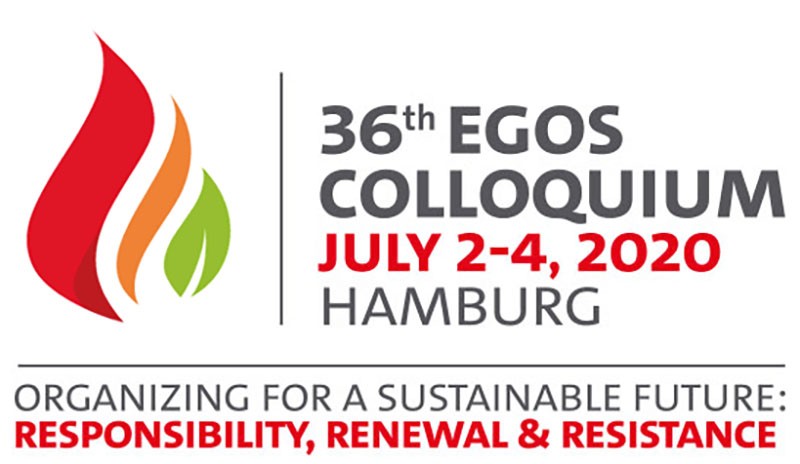PDW 04: Algorithms and Organizing: Drawing on Different Theoretical Perspectives to Explore Digital Phenomena
Call for Applications
Panelists
Luciana D’Adderio, The University of Edinburgh, United Kingdom
Samer Faraj, McGill University, Canada
Thomas
Gegenhuber, Leuphana University, Germany
Bob Hinings, University of
Calgary, Canada
Ruthanne Huising, emlyon business school, France
Neil
Pollock, The University of Edinburgh, United Kingdom
Purpose
Artificial Intelligence, through an explosion
in the proliferation of increasingly sophisticated algorithms, is reshaping organizational activity in a profound manner with
substantial – and not always visible – consequences for people, practices and organisations. For example, digital technologies
are being used to develop new tools that enhance organizational capabilities for generating efficiencies and stimulating innovations
(Brynjolfsson & McAfee, 2011). The introduction of such transformative technologies are likely to create the impetus for
significant changes to our understanding of professional expertise (e.g., Faraj et al., 2018), organizational routines (e.g.,
D’Adderio, 2008; Glaser, 2017), organizational decision-making (Lindebaum et al., 2019), information systems and infrastructures
(Kornberger et al., 2020) and innovation (e.g., Hinings et al., 2018).
In this pre-Colloquium Paper Development
Workshop (PDW), we bring together scholars from different organizational perspectives to explore the phenomenon of artificial
intelligence and algorithms from multiple theoretical lenses, including the associated methodological challenges and opportunities
(Seaver, 2017). The PDW is hosted as part of wider engagement activities related to the EGOS Standing Working Group (SWG)
06 on “Routines and Routine Dynamics”.
Format
The
workshop will consist of three parts:
Part 1 [120 minutes]: After a brief introduction by
the PDW convenors, our panelists will present a 10-minute overview explaining how artificial intelligence and algorithms connects
to theoretical themes in their areas of research. These presentations will be followed by half an hour moderated panel discussion
and 30–40 minutes general discussion with the audience.
Brief introduction and overview of the PDW (convenors)
Algorithms and institutional theory (Bob Hinings and Thomas Gegenhuber)
Algorithms and innovation (Samer Faraj)
Algorithms, information systems & infrastructures (Neil Pollock)
Algorithms, work and professions (Ruthanne Huising)
Algorithms, practices and routine dynamics (Luciana D’Adderio)
Moderated panel discussion (Vern Glaser)
General discussion (Kathrin Sele)
Part 2 [90 minutes]: The second part of the workshop
consists of a paper development workshop. Work in progress manuscripts as well as less developed project ideas will be discussed
in roundtable format. Each roundtable will feature discussions on submitted short papers (up to 5,000 words each) led by one
of the convenors or panelists (4-5 proposals per table). To encourage early stage work, we explicitly also welcome the submission
of project ideas (1,000–2,000 words extended abstracts, no short paper required in this case).
Part
3 [30 minutes]: The PDW ends with a general discussion (led by convenors) on the potential prospects and pitfalls
of studying novel technologies such as algorithms and artificial intelligence and related organizational phenomena.
Application
All scholars interested in studying novel technologies and their effects on organising
– are welcome to apply. We would like to encourage scholars from a variety of theoretical frames and methodological approaches.
While open to all career levels, priority will be given to PhD students/early career scholars. Early career scholars will
likely have completed their doctoral/PhD thesis within the last three years.
Please submit – via the EGOS
website! – a single document of application (.doc, .docx or .pdf file) that includes:
on the first page: a short letter of application containing full details of name, address (postal address, phone and email), affiliation (date of PhD completion for early career scholars), and a statement of why you consider it valuable to attend this PDW;
a short (500 words max.) statement outlining your interests, experience and motivation for joining the PDW;
your idea proposal (1,000–2,000 words extended abstract) or short paper (5,000 words at max.) outlining the proposed topic and its relevance, research question(s) and preliminary findings or reflections. Important components of the proposal include a description of the theoretical issues and/or empirical context and their connection to the themes of algorithms/artificial intelligence and organizing.
Attendance of the workshop is limited to the maximum of 25 participants.
Criteria for selection are quality and relevance of the paper/proposal to the theme.
References
- Brynjolfsson, E., & McAfee, A. (2011): Race Against the Machine: How the Digital Revolution is Accelerating Innovation, Driving Productivity, and Irreversibly Transforming Employment and the Economy. Lexington: Digital Frontier Press.
- D’Adderio, L. (2008): “The performativity of routines: Theorising the influence of artefacts and distributed agencies on routine dynamics.” Research Policy, 37(5), 769–789.
- Faraj, S., Pachidi, S., & Sayegh, K. (2018): “Working and organizing in the age of the learning algorithm.” Information and Organization, 28 (1), 62–70.
- Glaser, V.L. (2017): “Design performances: How organizations inscribe artifacts to change routines.” Academy of Management Journal, 60 (6), 2126–2154.
- Hinings, B., Gegenhuber, T., & Greenwood, R. (2018): “Digital innovation and transformation: An institutional perspective.” Information and Organization, 28 (1), 52–61.
- Kornberger, M., Bowker, G.C., Elyachar, J., Mennicken, A., Miller, P., Nucho, J.R., & Pollock, N. (2020): Thinking Infrastructures. Bingley: Emerald Group Publishing.
- Lindebaum, D., Vesa, M., & den Hond, F. (2019): “Insights From ‘The Machine Stops’ to Better Understand Rational Assumptions in Algorithmic Decision Making and Its Implications for Organizations.” Academy of Management Review, 45 (1), 247–263.
- Seaver, N. (2017): “Algorithms as culture: Some tactics for the ethnography of algorithmic systems.” Big Data & Society, 4 (2), 1–12.


